Rosa Louise McCauley Parks (1913 – 2005) was an African American civil rights activist who in 1955 famously refused to give up her bus seat launching the influential Montgomery bus boycott. Parks began her career as an activist in the early 1930s. She served as secretary in the Montgomery division of NAACP for 14 years from 1943 to 1957 during which she played a key role in mobilizing support for the rape victim Recy Taylor and bringing the incident to national notice. After the Montgomery bus boycott, Rosa Parks became an international icon of resistance to racial segregation. She has been called by the US Congress as “the first lady of civil rights” and “the mother of the freedom movement”. Rosa Parks received many awards and honors during her life including the Presidential Medal of Freedom and the Congressional Gold Medal. Know about her various contributions through her 10 major accomplishments.
#1 SHE HELPED ORGANIZe THE DEFENSE OF THE SCOTTSBORO BOYS
Rosa Parks began her activism in opposition to injustices committed against African Americans in the 1930s. Her first major involvement was in organizing the defense of the Scottsboro Boys, nine African American teenagers falsely accused of raping two White American women on a train in 1931. Rosa Parks and her husband Raymond, along with other black activists, organized secret meetings to raise money for the defense of the Scottsboro Boys. However, despite medical evidence to suggest that they had not committed the crime, four of the nine defendants were convicted of rape and all but two served prison sentences. The Scottsboro Boys case is now considered a gross miscarriage of justice.
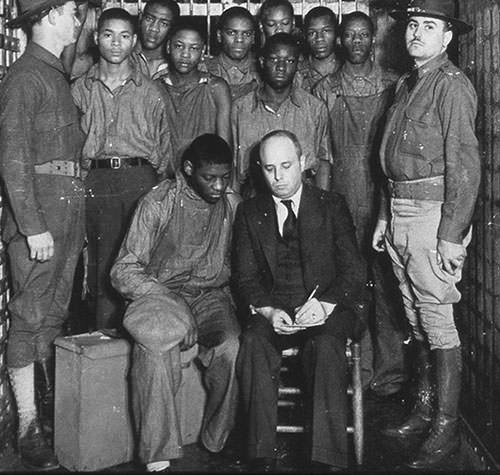
#2 SHE SERVED AS SECRETARY TO EDGAR NIXON IN NAACP
In 1943, Rosa Parks joined the Montgomery division of National Association for the Advancement of Colored People (NAACP), the leading African-American civil rights organization of the 20th century. The same year, she was elected secretary to the local NAACP leader Edgar Nixon. She served in this position for 14 years till 1957. As NAACP member, among other things, Parks and her allies used the networks they had stitched together during the Scottsboro case to protect black women from sexual assaults perpetrated by white men.
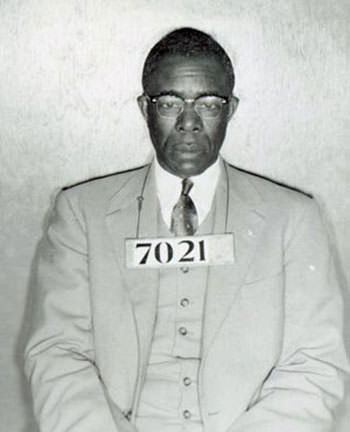
#3 She PLAYED A LEADING ROLE IN MOBILIZING PEOPLE TO SUPPORT RECY TAYLOR
In September 1944, an African American woman named Recy Taylor was kidnapped while leaving church and brutally gang-raped by six white men. Rosa Parks, in her capacity as secretary, investigated the incident. Rosa Parks played a leading role in spreading Recy Taylor’s story and in creating the Committee for Equal Justice for Mrs. Recy Taylor (CEJRT). The committee gathered national support with local chapters springing up across the United States. The Chicago Defender called it “the strongest campaign for equal justice to be seen in a decade” and it provided an early organizational spark for the African America civil rights movement. However, despite the men admitting the rape to authorities, the two all white male juries declined to indict the men, meaning no charges were ever brought against them.
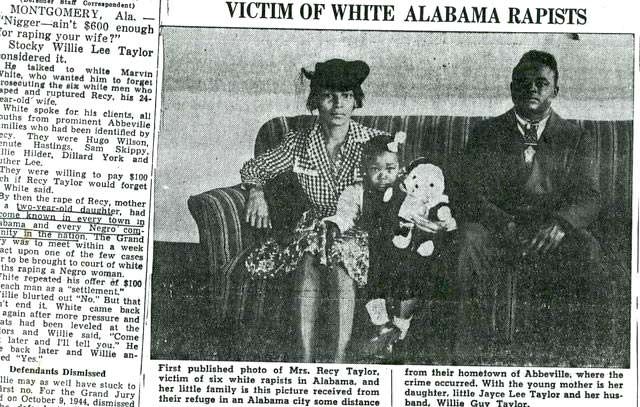
#4 HER REFUSAL TO GIVE UP HER BUS SEAT LED TO THE MONTGOMERY BUS BOYCOTT
In 1900, Montgomery had passed a city ordinance to segregate bus passengers by race. The blacks were generally assigned the back rows. On December 1, 1955, Rosa Parks boarded a bus and sat in an empty seat in the first row of back seats reserved for blacks. The bus was soon crowded and as some white passengers were standing, the driver James F. Blake ordered blacks to leave their seat for the white passengers. Three black men complied but Rosa Parks refused. Police was called and Parks was arrested and charged with a violation of the segregation laws. Four days after the incident, African Americans in Montgomery boycotted the bus service of the city in a protest campaign against the policy of racial segregation in the public transit system of the city. The Montgomery bus boycott is regarded as the first large-scale demonstration against segregation in the United States.
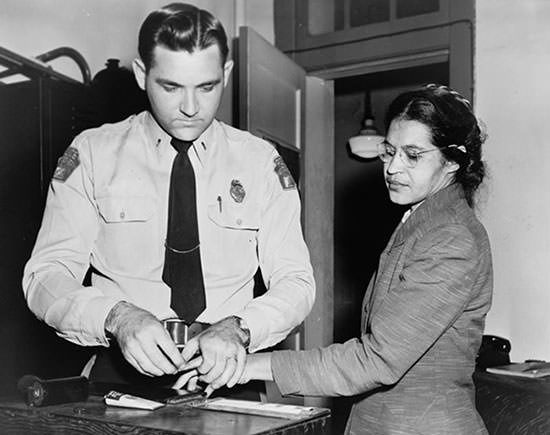
#5 She IS REGARDED AS MOTHER OF THE CIVIL RIGHTS MOVEMENT
African Americans constituted at least 75 percent of Montgomery’s bus ridership and the Montgomery bus boycott caused enough financial damage to the city transit system. It lasted from December 5, 1955 to December 20, 1956, when the US Supreme Court ruled Alabama and Montgomery laws requiring segregated buses to be unconstitutional. In 1956, the year of the boycott, Parks traveled throughout the country, raising awareness and funds for the movement. The Montgomery bus boycott was the earliest mass protest on behalf of civil rights in US and it was during the boycott that Martin Luther King Jr. emerged as a prominent national leader of the movement. For her role in the movement, Rosa Parks is called the “the mother of the civil rights movement” and the “the first lady of civil rights”.
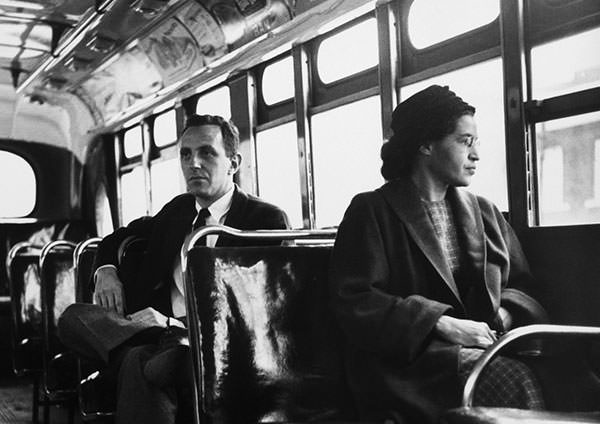
#6 SHE WAS INDUCTED INTO MICHIGAN WOMEN’S HALL OF FAME
In 1957, Rosa Parks moved to Detroit in the U.S. state of Michigan. She spent most of her remaining life there fighting against racial inequality. By 1968, Parks had also expanded her activism to include women’s equality. She joined the Detroit branch of the Women’s International League for Peace and Freedom (WILPF) and, by 1971, she was serving as one of the six vice-presidents of the group. WILPF aims to unite women worldwide to oppose oppression and exploitation; and to achieve permanent peace. 1983, Rosa Parks was inducted into Michigan Women’s Hall of Fame for her achievements in civil rights.
#7 SHE WROTE AN AUTOBIOGRAPHY TITLED ROSA PARKS: MY STORY
Rosa Parks served as a secretary and receptionist of congressman John Conyers for more than 20 years from 1965 until her retirement in 1988. In this capacity, she focused on socio-economic issues including welfare, education, job discrimination and affordable housing. As an activist, she continued to work on issues such as reparations, black history, anti-police brutality, freedom for black political prisoners, independent black political power and economic justice. After her retirement, Parks wrote two books: Rosa Parks: My Story (1992), an autobiography which recounts her life leading to her decision to keep her seat on the bus; and Quiet Strength (1995), a memoir which focuses on her faith.
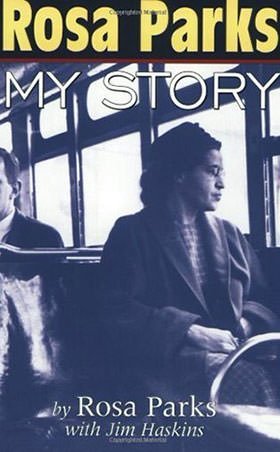
#8 SHE CO-FOUNDED ROSA AND RAYMOND PARKS INSTITUTE FOR SELF DEVELOPMENT
In 1980, Rosa Parks co-founded the Rosa L. Parks Scholarship Foundation, which awards scholarships to Michigan high school seniors. Since its foundation, it has benefited more than 900 applicants with over $1.8 million in scholarship money. In February 1987, along with Elaine Eason Steele, Parks co-founded the Rosa and Raymond Parks Institute for Self Development for youth development; and civil rights education and advocacy. The institute has various programs including the Pathways to Freedom which teaches the youth about every thing on the struggle of African Americans from the underground railroad to the civil rights movement.
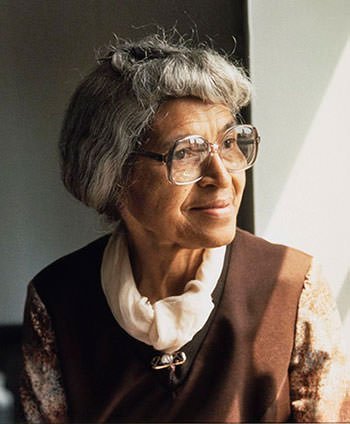
#9 She WAS AWARDED THE PRESIDENTIAL MEDAL OF FREEDOM IN 1996
In 1979, the NAACP awarded Rosa Parks the Spingarn Medal, their highest honor, and the following year, they presented her with the Martin Luther King Jr. Award. In 1996, President Bill Clinton presented Rosa Parks with the Presidential Medal of Freedom and in 1999, she was awarded the Congressional Gold Medal. The Presidential Medal of Freedom and the Congressional Gold Medal are the highest civilian awards in the United States. Parks received many other awards including the Candace Award (1984), the Peace Abbey Courage of Conscience Award (1992) and the International Freedom Conductor Award (1999).
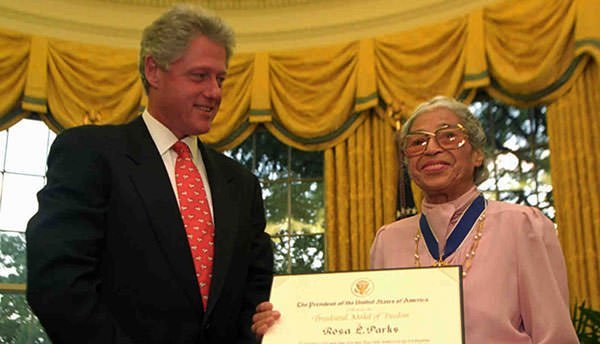
#10 SHE IS CONSIDERED ONE OF THE MOST INFLUENTIAL FIGURES OF 20TH CENTURY
Due to the Montgomery bus boycott, Rosa Parks became an international icon of resistance to racial segregation. She fought through her life for racial equality and women’s rights; and she is considered one of the most important figures of the African American civil rights movement. In 1999, Time magazine named Rosa Parks as one of the 100 most influential and iconic figures of the 20th century. Also, in 2002, African American scholar Molefi Kete Asante listed her on his list of 100 Greatest African Americans. Due to her contributions, Parks has been honored numerous times, both during her life and after her death in 2005.

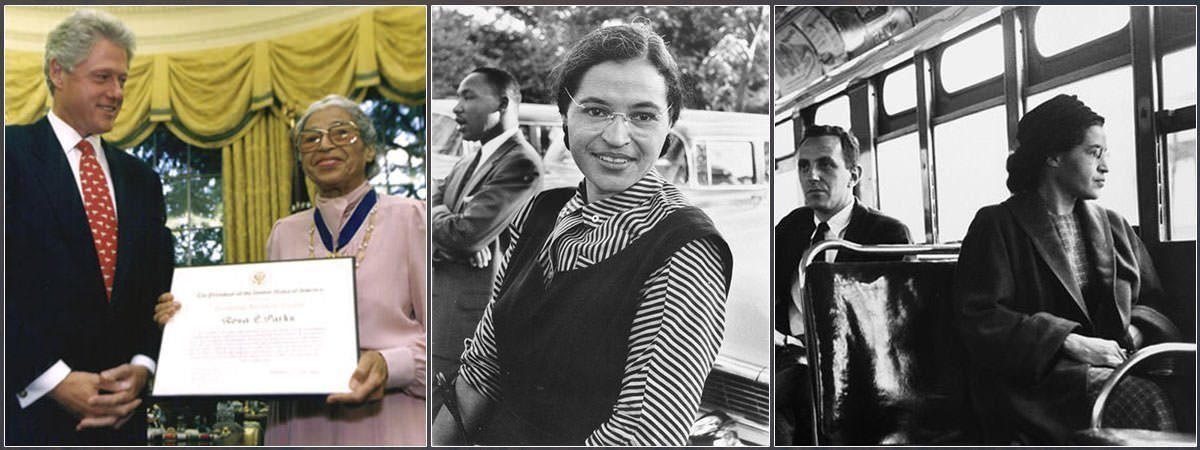
Boooooooooooooooooooooooooo!!!!!!!!! Medals did rosa parks get
cool
ikr i love rosa parks and everything she did for us